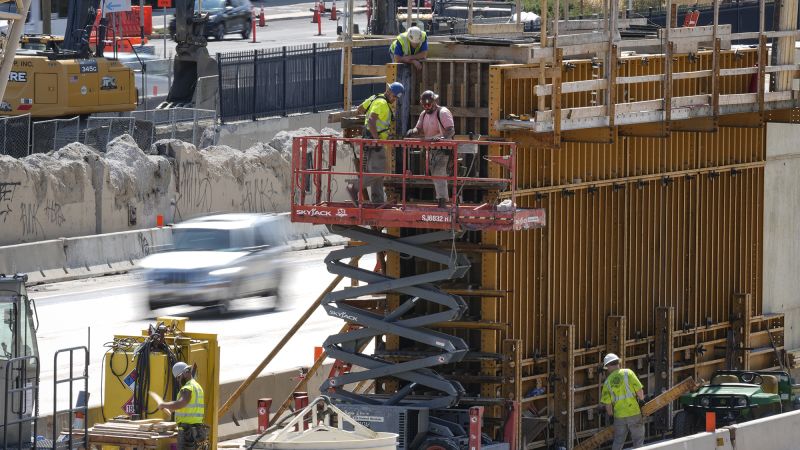Final jobs report before Election Day shows the US economy added just 12,000 positions last month | CNN Business

There are a few knowns and a boatload of unknowns in the shocks that could distort October’s payroll numbers.
What’s known: What’s known: Striking aerospace machinists and hotel workers are expected to reduce the October employment counts by more than 40,000 jobs, according to the BLS’ latest strike report. In October, there were 41,400 new striking workers (the lion’s share at Boeing) in addition to an ongoing video game voice actor strike.
On October 11, Boeing, which has the lion’s share of striking workers, announced plans to cut its workforce by 10%, or 17,000 jobs. Based on the timing of that announcement alone, none of those cuts will detract from October’s employment tally.
What’s unknown: Businesses don’t operate in a vacuum, so if operations dwindle or grind to a halt without their workers, that will ripple through to other firms.
The Boeing strike, for example, has potentially resulted in 5,000 to 7,000 layoffs at non-Boeing companies in Washington and Oregon, but it’s hard to know the full extent, Joe Brusuelas, chief economist at RSM US, told CNN.
The biggest unknown will be the impact from the hurricanes. The last time there were back-to-back major hurricanes — Harvey and Irma in 2017 — the forecasts for the following month’s jobs report were for a loss of 33,000 positions.
That September 2017 reading was later revised upward once more information had been obtained. In addition to the direct and devastating impacts that keep people out of work, weather events also impact the BLS’ ability to collect data from businesses and households.
“In a hurricane, the top priority is not sending your numbers into BLS,” Claudia Sahm, chief economist at New Century Advisors, told CNN in an interview. “The estimates in a natural disaster tend to get more imprecise.”
Related
U.S. economy adds jobs as federal layoffs and rising unemployment…
Julia Coronado: I think it's too early to say that the U.S. is heading to a recession. Certainly, we have seen the U.S. just continue t
The job listing site highlighting H-1B positions so Americans can…
A mysterious new job listings website recently went live, solely showing roles companies want to offer to their H-1B holders seeking Green Cards in an attempt t
Tepid February Jobs Report Boosts Odds of a June Fed…
Federal Reserve Board Chairman Jerome Powell speaks during a news conference. Photo by Chip ... [+] Somodevilla/Getty Images.Getty Images The February jobs repo
French university offers jobs to American scientists afraid of government…
As the current federal government in the U.S. has been freezing or cutting funding for several research grants, a French university has stepped in with an offer













